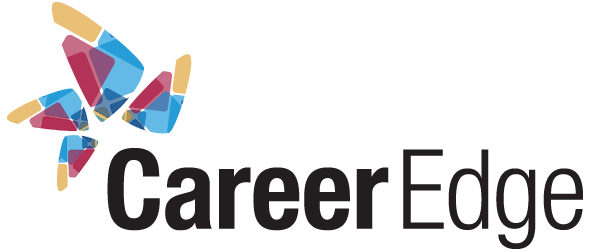Timing your application submission can dramatically impact your chances of consideration:
- Job postings receive 50% of their total applications within the first week
- Candidates who apply within the first 24 hours are 8x more likely to get an interview than those who apply after a week
- After day 5, your chances of getting called for an interview drop by over 75%
Mark, a recruiting manager with over 15 years of experience, explains: “When a position opens, there’s an initial burst of energy and focus. The hiring team is actively reviewing applications, comparing candidates, and looking for standouts. After that first wave, fatigue sets in, and it becomes harder for even qualified candidates to capture attention.”
Why Early Applications Stand Out
Several factors contribute to the early application advantage:
1. Hiring Manager Psychology
The first applications create a psychological anchor—they set the standard against which later applicants are judged. Early strong candidates become the benchmark, making it harder for later applicants to impress.
2. Applicant Tracking System (ATS) Algorithms
Many ATS platforms present applications in chronological order or give subtle preference to earlier submissions in their scoring algorithms. When recruiters face hundreds of applications, they often start reviewing from the top of the list and may never make it to the end.
3. First-Mover Impression
Early applications signal proactiveness, enthusiasm, and efficient decision-making—qualities employers value. As Rachel, an HR director, notes: “When I see someone applied within hours of our posting going live, I immediately think they’re actively engaged in their job search and specifically interested in our company.”
4. The Reality of Filled Positions
In some cases, particularly for in-demand roles, companies begin interviews while the posting is still active. By the time later applicants submit, several interview slots may already be filled.
Day of the Week Matters: Timing Your Submission
Research on application timing has revealed interesting patterns about which days yield better results:
The Monday-Tuesday Sweet Spot
- Applications submitted on Monday and Tuesday have a 30% higher interview rate than those submitted later in the week
- Tuesday between 11am-2pm is statistically the most successful time to submit applications
- Friday afternoon applications have the lowest success rate, with 20% fewer responses than early-week submissions
This pattern exists because hiring teams typically plan their week and set priorities early, making them more receptive to new applications during this window.
Season and Industry Timing
Certain industries have predictable hiring cycles:
- Education: February-April for fall positions
- Finance: January-February and September-October
- Retail: August-September for holiday staffing
- Technology: January-February and September-October after budget approvals
Understanding your industry’s rhythm can give you a significant advantage in timing your search.
Also Read: 10 Tips for Finding A Hidden Job in Canada
Interview Timing: The Science of Arrival
The importance of timing doesn’t end once you secure an interview. When you arrive can significantly impact the interviewer’s perception:
The 10-15 Minute Sweet Spot
Research into interview success rates shows a clear pattern:
- Arriving 10-15 minutes early demonstrates preparation and respect for the interviewer’s time
- Arriving more than 20 minutes early can create awkwardness and pressure for the interviewer
- Arriving exactly at the scheduled time may be perceived as cutting it too close
- Arriving even 5 minutes late can reduce your chances of receiving an offer by up to 15%
Michael, who conducts executive interviews, shares: “When candidates arrive in that perfect 10-15 minute window, it gives them time to settle, collect their thoughts, observe the environment, and be mentally prepared when I greet them. It sets the right tone for everything that follows.”
The Early Arrival Routine
Use your early arrival strategically:
- Observe company culture: Notice how employees interact, the pace of the workplace, and the general atmosphere
- Review your notes: Take a final look at your preparation materials
- Center yourself: Use breathing techniques to calm pre-interview jitters
- Make a positive impression: Engage professionally with reception staff (who are often asked for their impressions later)
- Use the facilities: Take care of basic needs so you’re comfortable during the interview
When Running Late Is Unavoidable
If circumstances make punctuality impossible:
- Call as soon as you know you’ll be late (before your scheduled arrival time)
- Provide a realistic updated arrival time (don’t create a second delay)
- Apologize briefly without oversharing details
- Refocus on the interview once you arrive rather than continuing to apologize
- Follow up with a thank-you note that acknowledges their flexibility
The Psychology Behind Timing Perceptions
Understanding how timing affects perceptions can help you navigate the subtleties of the hiring process:
The Halo Effect of Punctuality
Punctuality creates a positive halo effect where interviewers subconsciously attribute other positive qualities to you:
- Reliability and dependability
- Organization and preparation
- Respect for others’ time
- Attention to detail
- Ability to plan and execute
These associations happen automatically, creating a foundation of positive assumptions before the formal interview even begins.
Cultural Considerations Around Timing
Different workplace cultures have different timing expectations:
- Some industries (finance, legal, military) view precise punctuality as non-negotiable
- Creative fields may have slightly more flexible timing norms
- International companies may operate with different cultural expectations around time
- Startups might have different arrival protocols than established corporations
Research the specific timing culture of your target company by observing cues on their website, social media, and in communications with recruiters.
Beyond Applications: Perfect Timing Throughout Your Job Search
Strategic timing extends to every aspect of your job search:
Follow-Up Timing
- After application submission: Wait 5-7 business days before a polite inquiry
- After interviews: Send a thank-you email within 24 hours
- After a second follow-up: Wait at least 7-10 days before contacting again
- After rejection: Wait 3-6 months before reapplying for similar positions
Job Search Season Timing
- January-February: High hiring activity after new budgets are approved
- September-October: Second major hiring push before year-end
- November-December: Typically slower (exception: retail and hospitality)
- Summer months: Often slower but with less competition
Jennifer, a career strategist, advises: “Use slower seasons to build your network and prepare materials, then be ready to apply aggressively during high-volume hiring periods. Having everything ready when opportunities surge gives you that critical timing advantage.”
Expert Strategies: Maximizing Your Timing Advantage
Job Alert Systems
Set up strategic job alerts:
- Create alerts on multiple platforms with your key criteria
- Set alerts to notify you immediately rather than in daily digests
- Use keyword variations to ensure comprehensive coverage
- Check alerts in the morning and early afternoon to apply the same day
Application Preparation
Preparation enables quick responses:
- Create a master resume that can be quickly customized
- Prepare modular cover letter sections for different job types
- Keep your LinkedIn and portfolio constantly updated
- Have references pre-notified and ready
James, who found his dream job after six months of searching, shares: “Having my materials 90% ready meant I could apply to ideal positions within an hour of seeing them posted. The job I eventually got had over 200 applicants, but I was in the first five—which got me into the first interview group.”
Interview Timing Reconnaissance
Reduce arrival stress through preparation:
- Do a test drive/transit run at the same time of day as your interview
- Identify backup routes and alternative transportation options
- Scout parking options or transit stops in advance
- Research the building layout, including entrance locations and security procedures
The Job Offer Timing Dance
Even after receiving an offer, timing remains important:
- Request a reasonable decision timeframe (typically 3-5 business days)
- Use the full time provided, even if you’re certain (it maintains negotiation leverage)
- Consider the timing of other potential offers in your pipeline
- Respond within the agreed-upon timeframe to maintain goodwill
Common Timing Mistakes and How to Avoid Them
The “Perfect Application” Delay
Mistake: Spending days perfecting an application while the opportunity window closes.
Solution: Create a “minimum viable application” approach—identify what’s truly essential for the initial submission and what can be refined if you progress to later stages.
The Late Night Application
Mistake: Submitting applications late at night when you’re tired and more likely to make errors.
Solution: Schedule your application work during your peak mental hours, even if you discover the posting in the evening.
The “Just-in-Time” Interview Arrival
Mistake: Planning to arrive exactly at the interview time, leaving no buffer for unexpected delays.
Solution: Always plan to arrive 30 minutes early to the area, giving yourself a comfortable buffer before entering the building 10-15 minutes before the scheduled time.
The Eager Beaver Follow-Up
Mistake: Following up too quickly after applying or interviewing, appearing desperate rather than interested.
Solution: Use industry-standard waiting periods for follow-ups, focusing on quality and relevance in your communications.
Industry-Specific Timing Insights
Different industries have unique timing considerations:
Technology
- Be prepared for quick turnarounds—tech hiring can move rapidly
- Many tech companies post new positions on Tuesdays and Wednesdays
- Technical assessments may be time-sensitive once assigned
- Remote interviews may require testing technology in advance
Healthcare
- Position postings often align with academic cycles
- Credentialing processes create longer hiring timelines
- Shifts may require demonstrations of punctuality and reliability
- Interview schedules may accommodate clinical priorities
Finance
- Quarterly business cycles influence hiring patterns
- Morning interviews are more common than afternoon slots
- Punctuality expectations are typically stringent
- Application review often begins immediately after posting
Education
- Hiring cycles align with academic calendars
- Applications may remain open for standardized periods regardless of applicant volume
- Interview processes often include multiple stakeholders and scheduled phases
- Campus visits may require significant time allocation
Remote Job Application Timing in the Digital Age
Virtual hiring brings its own timing considerations:
Digital Interview Timing
- Log in 5-10 minutes early to test your technology
- Close unnecessary applications to ensure smooth performance
- Schedule interviews during periods of reliable internet connectivity
- Consider time zone differences carefully when scheduling
Virtual Job Fair Strategies
- Join at the beginning to maximize employer interaction time
- Research participating companies to prioritize your time efficiently
- Schedule one-on-one conversations early when recruiters are fresh
- Allow buffer time between scheduled conversations
Also check: Maintaining Your Well-being During Unemployment and Job Search
Conclusion: Make Time Your Competitive Advantage
In the competitive job market, every advantage matters. While candidates focus intensely on qualifications and interview performance, many overlook the strategic power of timing. By understanding and leveraging the impact of when you apply and when you arrive, you gain a significant edge.
Perfect timing demonstrates your professionalism, showcases your planning abilities, and positions your application optimally in the review process. From being among the first to apply to arriving precisely 10-15 minutes early for interviews, these timing strategies send powerful signals about your candidacy.
Remember that timing isn’t about gaming the system—it’s about demonstrating respect for the process and positioning yourself for maximum consideration. By incorporating these research-backed timing strategies into your job search approach, you transform time from a neutral factor into










